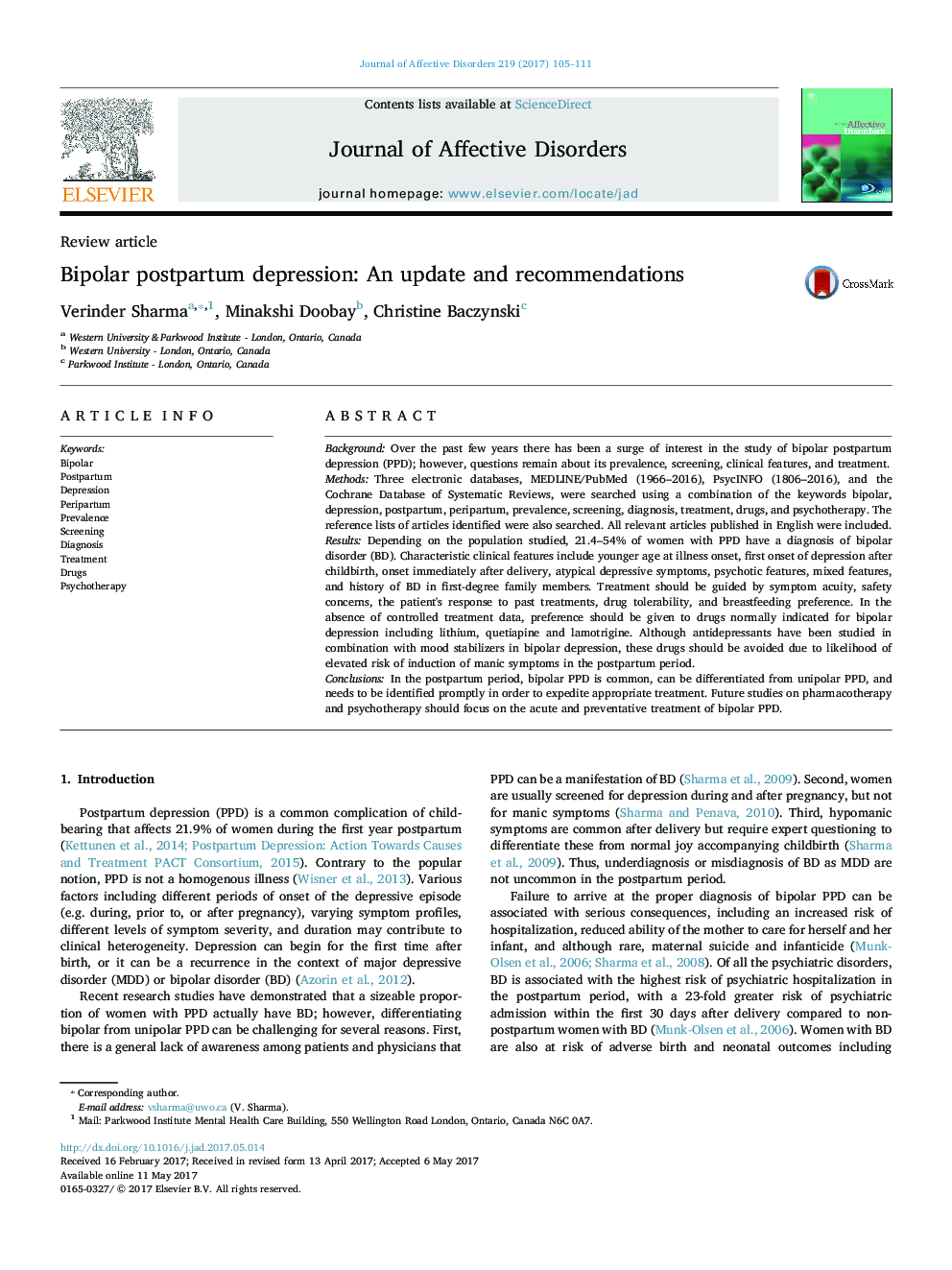| Article ID | Journal | Published Year | Pages | File Type |
|---|---|---|---|---|
| 5721880 | Journal of Affective Disorders | 2017 | 7 Pages |
â¢There has been a surge of interest in the study of bipolar postpartum depression.â¢Bipolar postpartum depression is common and can be distinguished from unipolar postpartum depression.â¢There is a paucity of literature on pharmacological and psychotherapeutic treatments.
BackgroundOver the past few years there has been a surge of interest in the study of bipolar postpartum depression (PPD); however, questions remain about its prevalence, screening, clinical features, and treatment.MethodsThree electronic databases, MEDLINE/PubMed (1966-2016), PsycINFO (1806-2016), and the Cochrane Database of Systematic Reviews, were searched using a combination of the keywords bipolar, depression, postpartum, peripartum, prevalence, screening, diagnosis, treatment, drugs, and psychotherapy. The reference lists of articles identified were also searched. All relevant articles published in English were included.ResultsDepending on the population studied, 21.4-54% of women with PPD have a diagnosis of bipolar disorder (BD). Characteristic clinical features include younger age at illness onset, first onset of depression after childbirth, onset immediately after delivery, atypical depressive symptoms, psychotic features, mixed features, and history of BD in first-degree family members. Treatment should be guided by symptom acuity, safety concerns, the patient's response to past treatments, drug tolerability, and breastfeeding preference. In the absence of controlled treatment data, preference should be given to drugs normally indicated for bipolar depression including lithium, quetiapine and lamotrigine. Although antidepressants have been studied in combination with mood stabilizers in bipolar depression, these drugs should be avoided due to likelihood of elevated risk of induction of manic symptoms in the postpartum period.ConclusionsIn the postpartum period, bipolar PPD is common, can be differentiated from unipolar PPD, and needs to be identified promptly in order to expedite appropriate treatment. Future studies on pharmacotherapy and psychotherapy should focus on the acute and preventative treatment of bipolar PPD.
